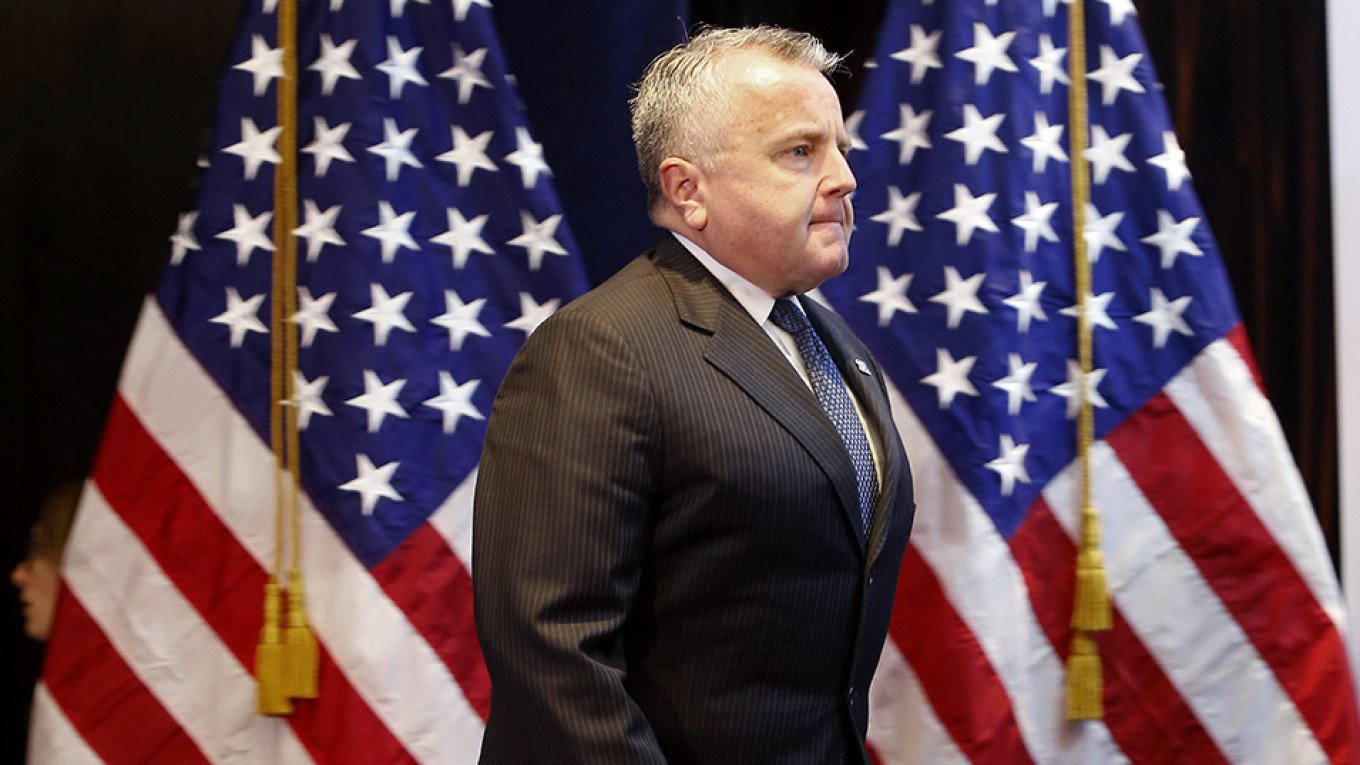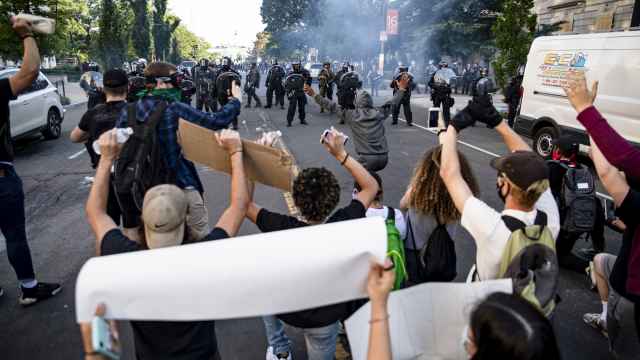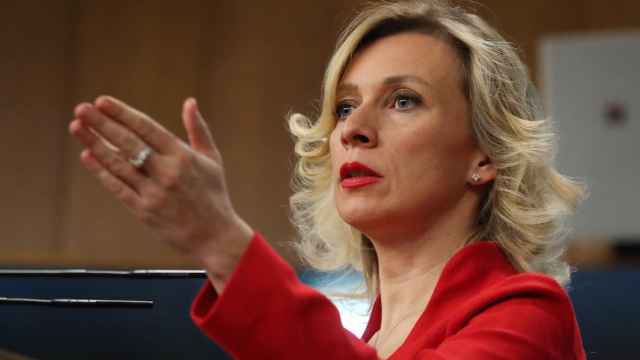Russia has summoned the United States' ambassador to Moscow over a “demonstration alert” urging U.S. citizens to avoid protests in support of jailed opposition leader Alexei Navalny, a move that Moscow called interference in its affairs.
Russia’s Foreign Ministry signaled its anger over the U.S. demonstration alert ahead of Saturday's mass rallies that drew tens of thousands of demonstrators across more than 100 Russian cities. Western leaders have condemned what they called a harsh crackdown on protesters, calling for their immediate release.
Russia’s Deputy Foreign Minister Sergei Ryabkov informed U.S. Ambassador John Sullivan that Moscow considers the safety alerts to be “direct interference in the internal affairs of our country,” Interfax reported Monday.
A U.S. mission spokeswoman, in response to earlier criticism from the Kremlin, told AFP that U.S. and other countries’ embassies and consulates around the world routinely issue safety messages to their citizens abroad.
Russia’s Foreign Ministry spokeswoman told state media that Moscow is also investigating “how American social media giants participate in the interference in our internal affairs,” Interfax reported.
She accused the platforms of violating its own terms of services by failing to moderate “fake” posts related to the rallies.
Russia has stepped up accusations of U.S. meddling in its affairs in the wake of a U.S. intelligence assessment that Moscow mounted a social-media and fake-news campaign in support of former President Donald Trump in 2016.
Russia, which was recently blamed for a massive cyber breach of U.S. federal agencies, denies that it meddles in U.S. politics.
A Message from The Moscow Times:
Dear readers,
We are facing unprecedented challenges. Russia's Prosecutor General's Office has designated The Moscow Times as an "undesirable" organization, criminalizing our work and putting our staff at risk of prosecution. This follows our earlier unjust labeling as a "foreign agent."
These actions are direct attempts to silence independent journalism in Russia. The authorities claim our work "discredits the decisions of the Russian leadership." We see things differently: we strive to provide accurate, unbiased reporting on Russia.
We, the journalists of The Moscow Times, refuse to be silenced. But to continue our work, we need your help.
Your support, no matter how small, makes a world of difference. If you can, please support us monthly starting from just $2. It's quick to set up, and every contribution makes a significant impact.
By supporting The Moscow Times, you're defending open, independent journalism in the face of repression. Thank you for standing with us.
Remind me later.






